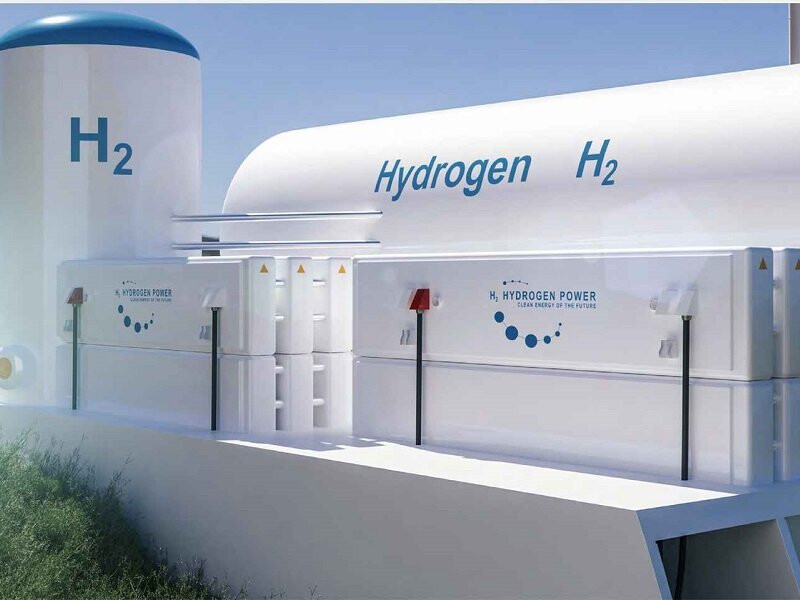
Montevideo, Uruguay – In a proactive move to prevent potential cross-border tensions, the Governor of Argentina's Entre Ríos province, Rogelio Frigerio, met with Uruguayan President Yamandú Orsi in Montevideo. The central focus of their discussion was the proposed installation of a green hydrogen plant by HIF Global on the Uruguayan bank of the Uruguay River, directly across from the Argentine city of Colón. Both leaders emphasized the critical need for dialogue and cooperation to ensure this development does not escalate into a conflict similar to the contentious Botnia pulp mill dispute of the 2000s.
Governor Frigerio underscored the unifying nature of the shared waterway, stating, "The Uruguay River unites us; it doesn’t separate us. That can’t be questioned." This sentiment was echoed by President Orsi, who stressed his government's commitment to engaging with all stakeholders to address concerns arising from the project.
The primary concern raised by the community of Colón revolves around the potential environmental impact of the green hydrogen plant and its possible adverse effects on tourism, the city's primary economic driver. Frigerio articulated this concern, explaining, "There is a request from Colón that this development of a novel energy source doesn’t compete with the city’s main work matrix, which is tourism."
President Orsi responded assuringly, highlighting his administration's willingness to engage in open dialogue to find mutually beneficial solutions. This commitment to communication was strongly supported by Uruguayan Foreign Minister Mario Lubetkin, who emphasized the importance of a cooperative approach in managing projects along the shared Uruguay River.
Drawing lessons from past diplomatic friction, Minister Lubetkin explicitly referenced the prolonged border blockades during the Botnia pulp mill controversy, stating, "Let what happened with the bridges never happen again." Both the Argentine and Uruguayan governments have pledged to ensure that the Paysandú plant adheres to principles of complementarity, sustainable development, and environmental responsibility.
"When the words are complementarity and cooperation, we are all going to win," Lubetkin summarized, highlighting the potential for mutual benefit through collaborative planning.
Beyond the immediate concerns surrounding the green hydrogen plant, Frigerio and Orsi also discussed and agreed to advance several strategic projects aimed at fostering greater regional integration and economic growth. These initiatives include:
Dredging of the Uruguay River: This crucial project aims to improve navigability for larger vessels, thereby facilitating increased trade and commerce along the waterway.
Projection of a Deep-Water Port in Soriano: The development of a deep-water port would significantly enhance the region's capacity for international trade and logistics.
Strengthening of the Waterway: This encompasses various efforts to optimize the Uruguay River as a vital artery for regional trade, benefiting not only Argentina and Uruguay but also Paraguay and the broader sub-region.
Minister Lubetkin concluded on an optimistic note, stating, "We are in a dynamic process of articulation so that there is no fear that could affect work, economic development, or tourism." This collaborative approach signals a strong commitment from both Argentina and Uruguay to navigate shared development opportunities in a way that fosters mutual prosperity and avoids past conflicts.
Background on Green Hydrogen:
Green hydrogen is produced through the electrolysis of water using renewable energy sources like solar and wind power. It is considered a clean energy carrier with the potential to decarbonize various sectors, including transportation, industry, and power generation. The proposed plant in Paysandú represents a significant investment in this emerging technology for the region.
The Botnia Pulp Mill Dispute:
The construction of the Botnia (now UPM) pulp mill in Fray Bentos, Uruguay, during the 2000s sparked a major diplomatic crisis between Argentina and Uruguay. Argentina raised concerns about potential environmental pollution of the Uruguay River, leading to prolonged protests and border blockades by Argentine citizens. The dispute went to the International Court of Justice, which ultimately ruled in favor of Uruguay, though the tensions significantly strained bilateral relations for several years. The current proactive engagement on the green hydrogen project indicates a clear desire from both nations to avoid a similar situation.
[Copyright (c) Global Economic Times. All Rights Reserved.]





























